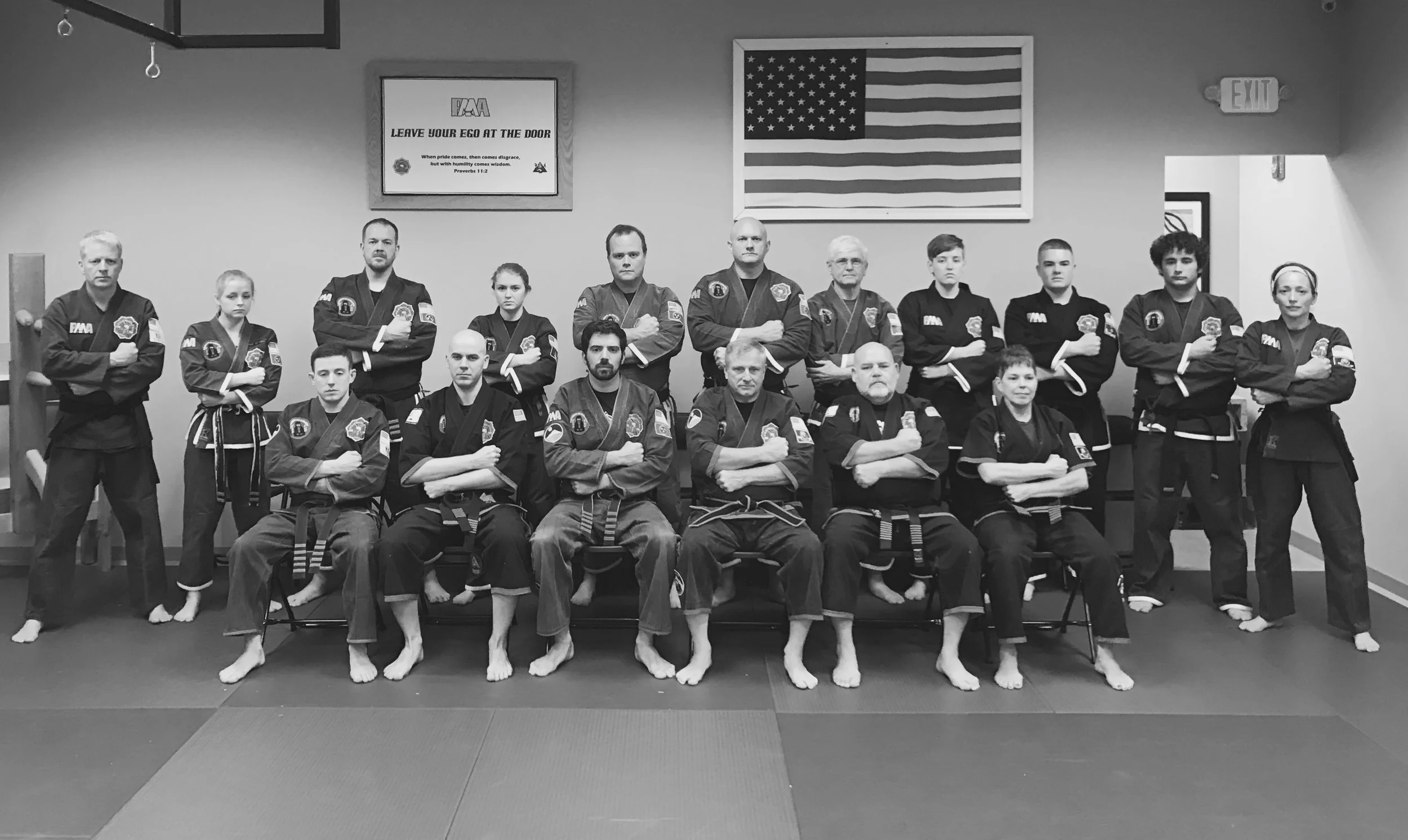When someone is committed to a cause, person, or thing, we call that loyalty. Loyalty is a feeling of devotion or faithfulness no matter what the current circumstance.
Some of you reading may already have some people or things you feel loyalty towards coming to mind: your family, your nation, your faith, your friends, your partner, or a favorite sports team (Go Vols!). Loyalty is asked of us a lot, and some people are even uncomfortable about the idea of commitment.
Let’s break loyalty down in a martial arts context and explore its application:
Loyalty may be what leads you to start training. Perhaps loyalty to your health and fitness goals inspired you to research ways to stay active. Maybe you wanted to be sure you could protect yourself and those you love. You were committed enough to your values of bettering yourself that you took action. That is loyalty.
From the second you take your first steps into an academy, your instructors should be loyal to you. They should be committed to giving you the best impression of martial arts possible. They shouldn't do this to “make a sale” or fill their class size, but rather because of their loyalty to martial arts in general. They should believe in its benefits and be committed to accurately portraying them. That way, even if this school is not the right fit for you, you keep looking for martial arts elsewhere. That is loyalty.
If you do discover the school is right for you and decide to join, they should ask for some loyalty in return. You may be asked to uphold the academy rules. There are countless reasons for these rules, but it is also one of the small instances you are asked to show your commitment to the academy. Albeit small, that is loyalty.
At some point in your training, you may hit a plateau. This plateau is well-known among martial artists but not talked about that often. It is when you start to feel stagnant (like you’re not progressing). Perhaps you haven’t gotten any new material lately and start to feel bored with your current techniques. You start wanting to skip class, but you don’t. You don’t because of your trust in your instructor’s plan for your journey in the martial arts. You don’t because of your commitment to bettering yourself and all the reasons you started training martial arts in the first place. That is loyalty.
Fast-forward years and years down the road. You have demonstrated determination, commitment and an understanding of the core material. At this academy your brown belt is replaced with a white one, signifying you are now in preparation for your Black Belt test. For the next several months, you are asked to show humility, conviction, perseverance, grit, and most of all loyalty. You show commitment to your training by increasing your attendance and your time outside of class practicing material and getting in the best shape you can. You show this loyalty to prove that when the mentally and physically grueling test does come, you will not quit—no matter how hard it is.
Really the Black Belt test at its core can be seen as an expression of your loyalty to your training and yourself. No matter how tough things get, no matter how you feel that day, loyalty stays constant and quitting is never an option. When the test is over, nothing changes.
This allegiance to your training, training partners, and instructors stays—forever!
If this level of devotion seems crazy to you now as a beginner student, don’t worry. By the time you’re at that level, just like you have practiced punching and kicking, you will have practiced loyalty so much throughout your training that it will feel natural. It will never be easy, but it will be natural.
I’ll leave you with a poem written by PMA student and Black Belt, Jack Tuberville, that you can find hung up in our lobby:
Black Belt
The white belt learns to kick and punch
And take another down.
He trains in use of stick and knife
And grapples on the ground.
The Black Belt still has much to learn,
But nothing left to prove.
All fear he’s long since put aside;
He walks in different shoes.
He lives to serve both kith and kin,
And keep this pledge held true:
In time of trouble
If you call
I will stand by you.

